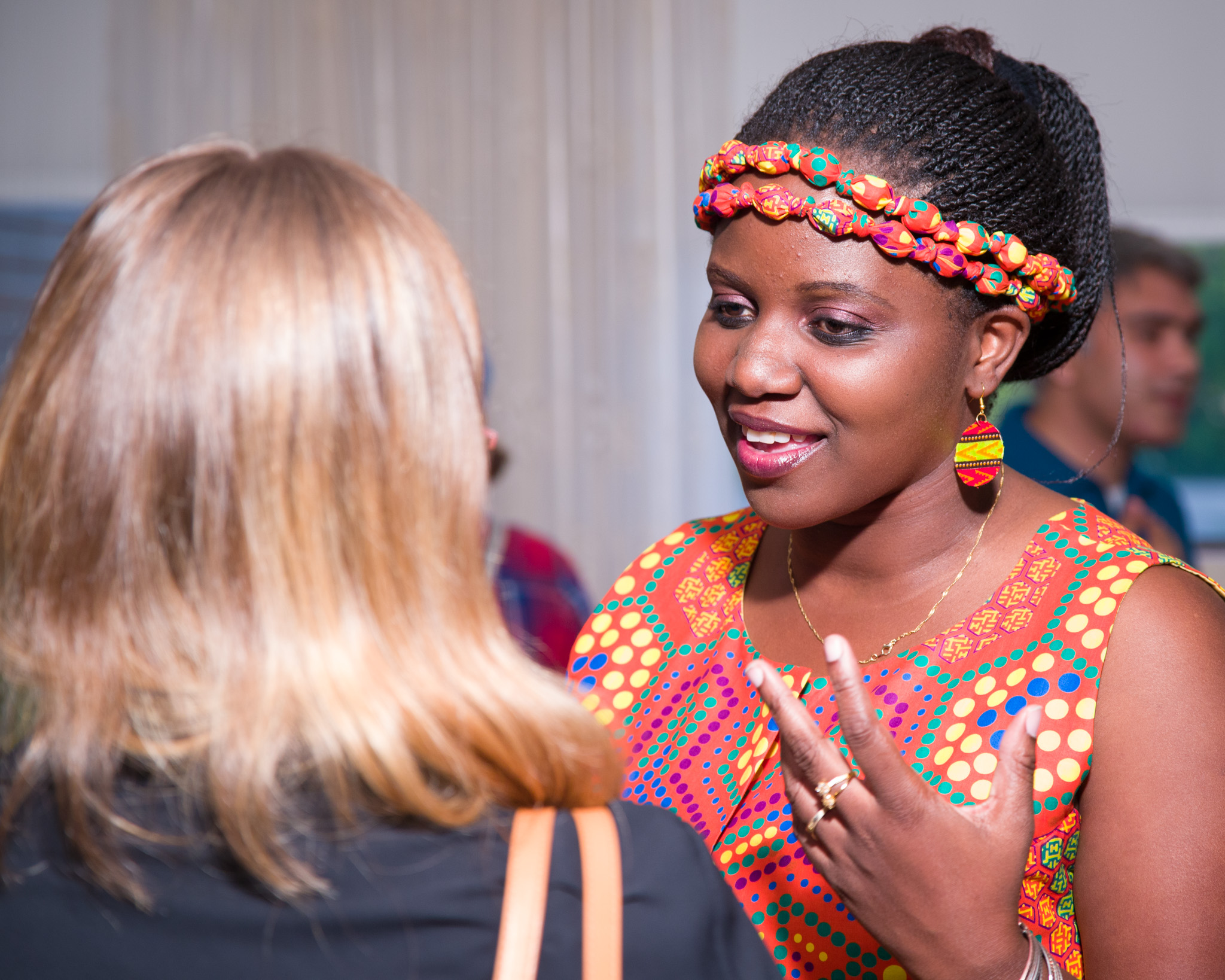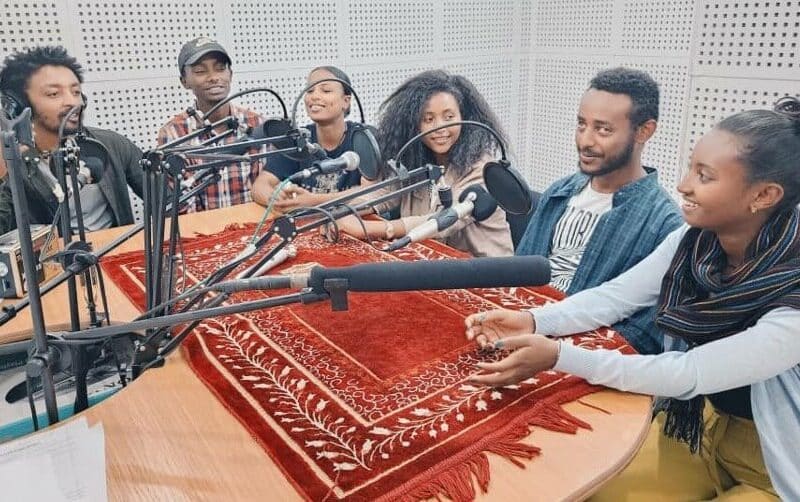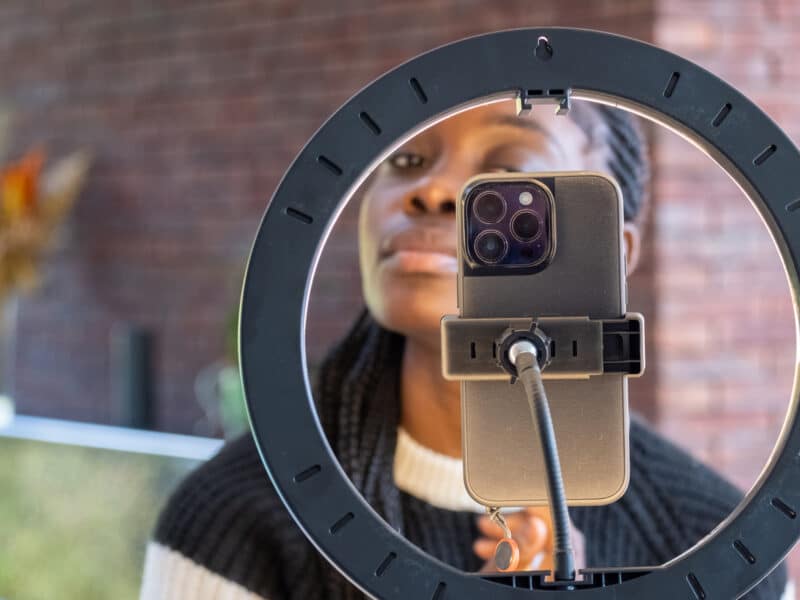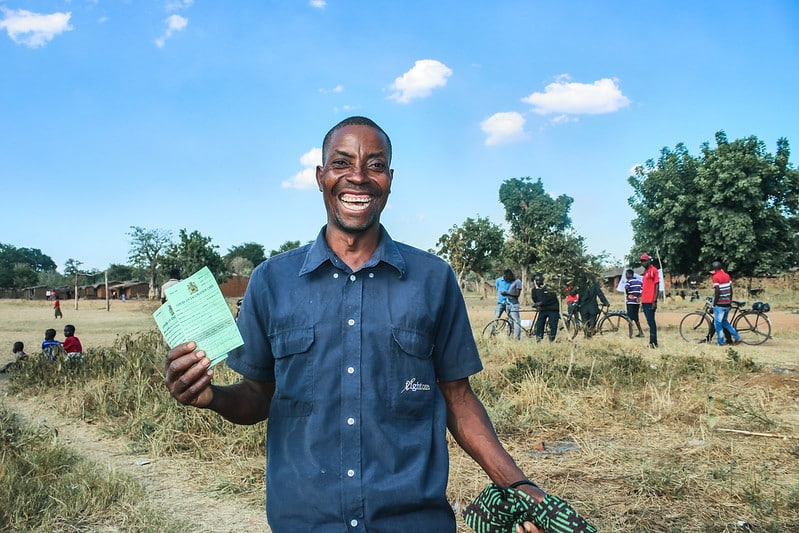One Community, USAID’s flagship community-based response to Malawi’s HIV epidemic, aims to mitigate the impact of HIV and prevent new infections among priority populations by focusing on building strong HIV-competent communities, families and individuals. One Community is implemented by CCP, Project HOPE and Plan International.
We recently had the opportunity to sit down with One Community’s Deputy Chief of Party, Thoko Mwapasa, to learn more about how she became involved in social and behavior change communication (SBCC). Below is an excerpt from our interview.
My undergraduate training was in administration and immediately after college, I joined the private sector [but] I found myself more interested in working with people directly, making a direct impact in people’s life. So I decided to get into counseling. I went for a master’s degree program in counseling psychology. That was at a time when there was a great need for HIV/AIDS counseling in Malawi and we had very few trained counselors, so I wanted to make a contribution in that area.
I studied counseling psychology and focused my work on HIV counseling. I then joined a program under Save the Children, Umoyo Network. The main objective of the program was to build local capacity to improve the quality of HIV/AIDS service provision and promote health-seeking behaviors among people affected or living with HIV. I found myself venturing more in the community mobilization aspects and working with different groups like the faith-based community, people living with HIV, women and children. In addition to promotion of HIV testing and counseling, we were promoting psychosocial support and implementing strategies to reduce stigma and discrimination. With that experience, I found myself leaning more towards population-based approaches. I then decided to study for a Master in Public Health, where I focused more on health promotion and disease prevention and that is how I found my way into SBCC.
I started working with ADRA, Adventist Development Relief Agency in Malawi in the field of development communication using radio and television. And after that I worked for Story Workshop and by then we were sub-contracted by Johns Hopkins CCP Malawi BRIDGE II to implement the media component of the program. That’s how I got to learn more about CCP’s work in Malawi.
I joined CCP in January 2016 on One Community. The approach in One Community is unique because we will be delivering targeted core package of interventions to specific priority populations. We are guided by the social ecological model to define core package of interventions at the different levels, starting from the individual and family level, to community and structural levels. I am in a management role now but I also provide technical support to the different program components, based on my experience as I have already described.
I see a great role [for SBCC] in One Community, especially in shaping social and cultural norms in order to reduce HIV vulnerability among priority populations. At an individual level, One Community will work with targeted groups to strengthen their ability and self-efficacy to prevent HIV infections and for those living with HIV, to adhere to treatment. One community will also promote health-seeking behaviors and encourage priority groups to get tested for HIV and access care and support services.
In One Community, we are using a combination prevention approach, which integrates biomedical, behavioral and structural interventions. We are targeting specific groups: like orphans and vulnerable children, adolescent girls and young women, people living with HIV, and other vulnerable populations like estate workers and fishing communities. We will be using different SBCC strategies, interpersonal communication, small group discussions and community dialogue to reach out to these groups.
At the community level, we are going to be working with community leaders and different community groups to identify norms that promote safe and positive behavior while advocating against the harmful practices that increase HIV vulnerability, for example for women, young girls, and children. We also have an element of capacity building where we will train resource persons in the community to deliver the core HIV/AIDS prevention, care and support packages. The community resource persons will be trained and provided with job aids and tools and will also be mentored so that at the end of One Community we have created HIV-competent communities with individuals that can provide service to their communities.
I remember specifically with one of the radio programs with Story Workshop, which was a drama series, where we were featuring a particular character who the audience got really attached to and were following and commenting a lot on her behavior. We’d have a lot of feedback from the audience to a point where people wanted to relate to her, [to give her their] impact stories and say that they were in the same situation. There was a time that the person who was playing that character had to leave the country and now there was dilemma on how to deal with her character in the drama. The character then had to be cut off in the script and so in the drama she got sick and died. The listeners were so moved by her death that they were sending condolence messages thinking that she was really dead. That showed how much impact SBCC has on the audience and how people really get moved and attached to the stories and the messages. I have also seen impact at a community level where after SBCC campaigns communities decide to take collective action to change certain things, adopt positive behaviors or as a community develop bylaws against harmful social and cultural practices, for example on initiation rites for young boys and girls and early marriages. SBCC is powerful, it changes people at an individual and community level.





